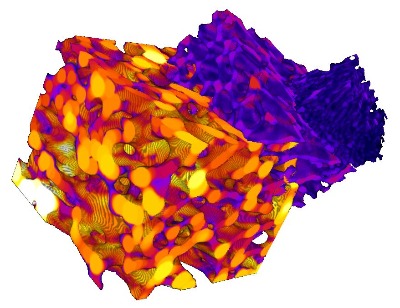New Leverhulme Grant awarded to Dr Michael Doube
Congratulations to Dr Michael Doube who has been awarded a grant by the Leverhulme Trust for his proposal, "Act big, get big. Bone cell activity scaling among species as a skeletal adaptation mechanism"
Bones, and the foam-like structures within them, have differing scale and shape in large and small animals. This makes sense because large animals' skeletons must bear greater body weight than small animals. Galileo imagined that very tall animals would need to have monstrously thickened bones to avoid crumbling under their own weight. But is all the variation in skeletal shape related to mechanical loading? Imagine replacing the bone cells of an elephant with those of a mouse: would the elephant's mechanical loads cause the mouse cells to produce elephant-sized bony structures, or would the mouse cells make mouse-sized structures despite being in an elephant?
A central concept in bone biology is that bone strain is the primary determinant of bone shape (Wolff's Law and Frost's Mechanostat), effected by the action of bone cells called osteoclasts and osteoblasts. Osteoclasts resorb bone tissue and osteoblasts produce bone tissue. The coordinated action of this pair of cell types results in bone tissue arrangement within bone organs. This is broadly correct within a single animal, but it doesn't fully explain the range of bone structures seen in the animal kingdom.
We propose that bone cells have differing levels of activity dependent on species and body size, and that this may help to explain how skeletal forms arise during evolution. Under a 3-year, £192,000 Leverhulme Trust research project grant, we will isolate osteoblasts and osteoclasts from animals great and small and measure their activity under standardised conditions, which has not been attempted systematically before now.

You may also be interested in:
-
The RVC appoints new Head of Department of Comparative Biomedical Sciences to strengthen research excellence and innovation
The Royal Veterinary College (RVC) has appointed Professor Jodi Lindsay as the new Head of the …

